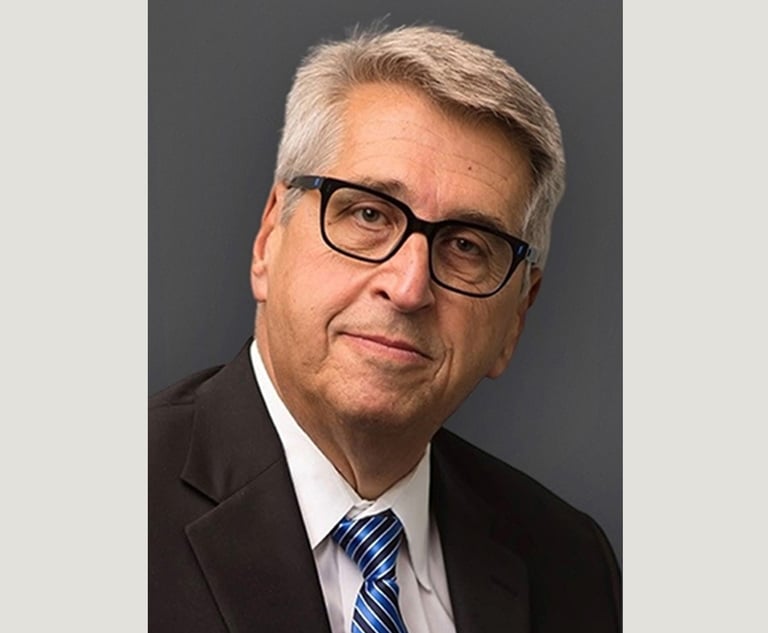Controverting Affidavits for Medical Expense Calculations in PI Cases
Using controverting affidavits effectively and efficiently remains a constant battle in Texas personal injury cases. The controversy over controverting…
May 22, 2018 at 11:30 AM
5 minute read

Using controverting affidavits effectively and efficiently remains a constant battle in Texas personal injury cases. The controversy over controverting affidavits was born in 2003 when Section 41.0105 of the Texas Civil Practice & Remedies Code was enacted as part of “tort reform” legislation seeking to limit medical expenses a plaintiff can recover to only those that are “actually paid or incurred.”
The Texas Supreme Court's decision in Haygood v. De Escabedo held that Section 41.0105 of the Texas Civil Practice and Remedies Code “limits a claimant's recovery of medical expenses to those which have been or must be paid by or for the claimant.” Haygood v. De Escabedo, 356 S.W.3d 390, 391 (Tex. 2011). Seven years later, lawyers are still struggling to find methods to present and challenge medical expenses in personal injury litigation.
Generally, practitioners rely on affidavits that conform to the format prescribed by the Texas legislature to effectuate the proof requirements. Tex. Civ. Prac. & Rem. Code § 18.002. Plaintiffs serve numerous 18.001 affidavits seeking to establish medical cost and necessity of treatment resulting from an injury at issue in the lawsuit. Defendants typically challenge these affidavits by filing controverting affidavits within 30 days. If left uncontroverted, 18.001 affidavits are sufficient to support a factual finding that the medical care was reasonable and necessary, and plaintiffs can rely solely on the affidavits to establish their damages.
Whether a billing records custodian, who traditionally fills out an 18.001 affidavit, is qualified to provide this information is another issue. Traditionally, a record custodian could sign an 18.001 affidavit to prove the reasonableness and necessity of medical bills. The De Escabedo opinion undermines the continued viability of these prescribed affidavits. If the standard for the collectability of past medical expenses is based on what a health care provider has been paid or has a legal right to be paid, a record custodian may not be competent to testify as to what a health care provider has a legal right to be paid. Record custodians rarely have the knowledge concerning agreements between health care providers and health insurers. It may now be necessary for a personal injury plaintiff to obtain discovery from the health insurer to determine what amounts would have been paid if the bill had been properly submitted.
Moreover, some reductions and write-offs, for instance, charitable or discretionary write-offs, do not fall under § 41.0105. See Big Bird Tree Serv. v. Gallegos, 365 S.W.3d 173 (Tex. App.—Dallas 2012, no pet.). Such discretionary reductions are often readjusted after the plaintiff's litigation is concluded. This is particularly true when a medical provider learns that the plaintiff obtained a recovery in litigation. The plaintiff is no longer indigent and re-adjustments are made in order to recover the full amount of the billed medical expenses.
After De Escabedo, plaintiffs steered away from submitting medical expenses to health care insurance companies and relied on medical providers who accepted letters of protection. With letters of protection in place, medical providers then could charge higher than normal rates for treatment. The full unadjusted amounts would then be presented to the jury, since there was no paid or incurred amount.
A new decision by the Supreme Court of Texas in In re: North Cypress Medical Center Operating Co., Ltd., calls the issue of write-offs and contract rates into question and will likely lead to discovery of the contracts and pay schedules between medical providers and health care insurance companies.
The Court held that a party contesting the reasonableness of medical expenses is entitled to discovery of contracts with health care insurance companies regarding negotiated reimbursement rates the health care insurance companies accepted for the same services at issue in the lawsuit; Medicare and Medicaid reimbursement rates for those services; and annual Medicare cost reports submitted by the health care insurance companies for the previous five years. Although the Court's holding pertained to discovery of reimbursements from health care insurance companies in the context of a disputed hospital lien, the Court directly addressed relevance of the disputed information under Texas Rule of Evidence 401 in a manner that should open the door for potential admission of the health care insurance company contracts and reimbursement rates in personal injury litigation when defendants are controverting the affidavits filed by plaintiffs. This calls into question previous rulings by Appellate Courts allowing unadjusted medical bills into evidence. See Henderson v. Spann, No. 07-11-00133-CV, 367 S.W.3d 301 (Tex. App.—Amarillo 2012, writ denied); Big Bird, 365 S.W.3d at 173; Huston v. United Parcel Serv., Inc., 434 S.W.3d 630, 633-43 (Tex. App. 2014), review denied (Sept. 19, 2014).
The North Cypress decision illustrates the Texas Supreme Court's continued struggle with the intricacies of how medical expenses are projected and presented to juries. While this recent ruling provides new guidance, there appears to be no clarity in sight.
Meloney Perry is the founding partner of the Dallas office of Perry Law P.C. Her practice focuses on insurance bad-faith, coverage and class action litigation in multiple jurisdictions including Colorado, New Mexico and Texas. For more information about the firm, visit www.mperrylaw.com.
This content has been archived. It is available through our partners, LexisNexis® and Bloomberg Law.
To view this content, please continue to their sites.
Not a Lexis Subscriber?
Subscribe Now
Not a Bloomberg Law Subscriber?
Subscribe Now
NOT FOR REPRINT
© 2025 ALM Global, LLC, All Rights Reserved. Request academic re-use from www.copyright.com. All other uses, submit a request to [email protected]. For more information visit Asset & Logo Licensing.
You Might Like
View All
From Hospital Bed to Legal Insights: Lessons in Life, Law, and Lawyering
6 minute read

Nondisparagement Clauses in Divorce: Balancing Family Harmony and Free Speech
6 minute readTrending Stories
- 1Litigators of the Week: US Soccer and MLS Fend Off Claims They Conspired to Scuttle Rival League’s Prospect
- 2Litigator of the Week Runners-Up and Shout-Outs
- 3U.S.- China Trade War: Lawyers and Clients Left 'Relying on the Governments to Sort This Out'
- 4Willkie Adds Five-Lawyer Team From Quinn Emanuel in Germany
- 5AI Discrimination and the 10-Step Bias Elimination Audit
Who Got The Work
J. Brugh Lower of Gibbons has entered an appearance for industrial equipment supplier Devco Corporation in a pending trademark infringement lawsuit. The suit, accusing the defendant of selling knock-off Graco products, was filed Dec. 18 in New Jersey District Court by Rivkin Radler on behalf of Graco Inc. and Graco Minnesota. The case, assigned to U.S. District Judge Zahid N. Quraishi, is 3:24-cv-11294, Graco Inc. et al v. Devco Corporation.
Who Got The Work
Rebecca Maller-Stein and Kent A. Yalowitz of Arnold & Porter Kaye Scholer have entered their appearances for Hanaco Venture Capital and its executives, Lior Prosor and David Frankel, in a pending securities lawsuit. The action, filed on Dec. 24 in New York Southern District Court by Zell, Aron & Co. on behalf of Goldeneye Advisors, accuses the defendants of negligently and fraudulently managing the plaintiff's $1 million investment. The case, assigned to U.S. District Judge Vernon S. Broderick, is 1:24-cv-09918, Goldeneye Advisors, LLC v. Hanaco Venture Capital, Ltd. et al.
Who Got The Work
Attorneys from A&O Shearman has stepped in as defense counsel for Toronto-Dominion Bank and other defendants in a pending securities class action. The suit, filed Dec. 11 in New York Southern District Court by Bleichmar Fonti & Auld, accuses the defendants of concealing the bank's 'pervasive' deficiencies in regards to its compliance with the Bank Secrecy Act and the quality of its anti-money laundering controls. The case, assigned to U.S. District Judge Arun Subramanian, is 1:24-cv-09445, Gonzalez v. The Toronto-Dominion Bank et al.
Who Got The Work
Crown Castle International, a Pennsylvania company providing shared communications infrastructure, has turned to Luke D. Wolf of Gordon Rees Scully Mansukhani to fend off a pending breach-of-contract lawsuit. The court action, filed Nov. 25 in Michigan Eastern District Court by Hooper Hathaway PC on behalf of The Town Residences LLC, accuses Crown Castle of failing to transfer approximately $30,000 in utility payments from T-Mobile in breach of a roof-top lease and assignment agreement. The case, assigned to U.S. District Judge Susan K. Declercq, is 2:24-cv-13131, The Town Residences LLC v. T-Mobile US, Inc. et al.
Who Got The Work
Wilfred P. Coronato and Daniel M. Schwartz of McCarter & English have stepped in as defense counsel to Electrolux Home Products Inc. in a pending product liability lawsuit. The court action, filed Nov. 26 in New York Eastern District Court by Poulos Lopiccolo PC and Nagel Rice LLP on behalf of David Stern, alleges that the defendant's refrigerators’ drawers and shelving repeatedly break and fall apart within months after purchase. The case, assigned to U.S. District Judge Joan M. Azrack, is 2:24-cv-08204, Stern v. Electrolux Home Products, Inc.
Featured Firms
Law Offices of Gary Martin Hays & Associates, P.C.
(470) 294-1674
Law Offices of Mark E. Salomone
(857) 444-6468
Smith & Hassler
(713) 739-1250







